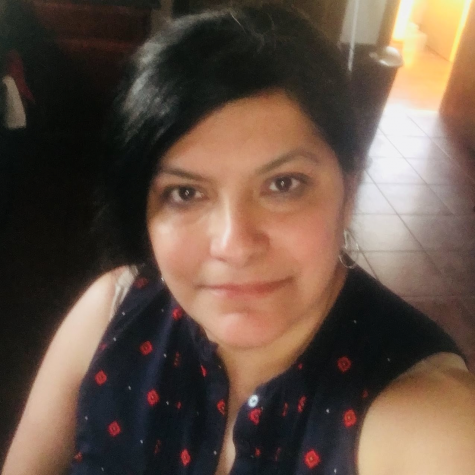Pulitzer Prize Winner Quiara Alegría Hudes’ Memoir Offers Insight into Family and Heritage
March 21, 2023
Trigger warnings: This book has family trauma and deals with the national health crisis, sexual content, the LGBTQIA+ community, and sanitaria.
The book “My Broken Language: A Memoir” is an autobiography of Quiara Alegría Hudes. The weight of a family on a person’s shoulder, especially a Latinx one, can bring you to your knees. As I read this book, the more so devoured it, Alegría Hudes gives the reader a front-row seat to a life filled with the feeling of being a part of two different worlds, but not belonging to either. The book is about a great number of first-generation people whose parents immigrated to the United States. Alegría Hudes describes feeling like a fake Latina and a fake “white (passing depending on your skin color)” person.
The ties of family, the loss of native language just to assimilate, the guilt of those that made it off the streets, the food prepared with a secret ingredient – love, and traditions that were the lifeline to a way of life you never really knew but runs through your veins: All of these things helped mold you into the person you are today, but…there is always a but, you are almost like a double agent. Fair-skinned, with no accent, and a very skillful writer allowed you to break into the holy grail of schools, the opportunity of a lifetime, Yale University.
Throughout the life of Alegría Hudes, you are privileged to glimpse what this is all about—the bird’s eye view of a person living two very different lives. One life is filled with vivid colors, and rhythmic music, and steeped in tradition, while the other you faked it until you made it. Private school uniforms, hiding who you really are just to fit into this world that was not truly yours. Your world, your home life, your mother’s santeria and so much more, you hide from the rest of the world. You deny this life and almost feel shame.
Through colorful characters, Alegría Hudes recounts real-life heartbreak and loss, the start of AIDS taking the lives of loved ones, dealing with sexual encounters, coming to terms with religion, and finally figuring out her place in the world.
“My Broken Language: A Memoir” is a page-turner, a glimpse into the life of the author and what it took to find out who she was and what stories she had to tell. This book is a beautiful tale of a life worth living, a life filled with what it is like to discover yourself in those ordinary moments that you had taken for granted. The transformation of a character in a book that happens to be the author is not limited to the pages or chapters of the book, but your own imagination gives life to them. Life is breathed into the memories. Yes, these memories are the author’s but are also much of what happens in so many others’ experiences that it was hard to recognize where her story is hers and where and when it became yours.
The reader feels the author’s pain, remembers what it is like to hide who you really are so as not to be judged by others, and the impossible, almost Herculean effort it takes to keep your family from view, so they would not bring embarrassment to you and the life they wanted you to live. Yet, you are given a front-row seat to the opening night of the plays that depicted the ordinary days in the ordinary life of the author. The curtain opens with the view of a kitchen, the scent of rich spices fills the air, and the coming of self on full display is what this book offers. The ordinary is turned into the extraordinary, and the moments you wish you could do over are relieved.
You will not be able to put this book down. I give it a 5-star rating and would give it more if I could. Take time to savor this book. Look upon this glimpse at her life and the soul-bearing she did. Learn to appreciate the ordinary, because in reality, it all is quite extraordinary.








